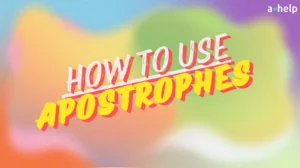Learning grammar can feel like a sea of rules and exceptions, especially since each language has its unique quirks. It’s normal to feel confused sometimes. Think about how English uses articles like “a” and “the,” while some languages don’t use them at all. Or how verb tenses can change the meaning of a sentence entirely. Different languages have their own specific rules, which can be quite distinct.

✅ AI Essay Writer ✅ AI Detector ✅ Plagchecker ✅ Paraphraser
✅ Summarizer ✅ Citation Generator
However, the good news is that there are some general practices that can help you improve your grammar across the board. Whether you’re learning English, Spanish, or any other language, understanding the basics and practicing regularly can make a big difference. In this guide, we’ll explore simple and practical tips to help you boost your grammar skills. Don’t worry; it’s all about taking small steps and enjoying the process. Let’s get started!

Know Your Basics
Improving your grammar starts with nailing down the basics. Let’s break it down together. First, let’s look at sentence structure. Every sentence needs a subject (who or what you’re talking about) and a predicate (what’s happening). Think of “The dog runs.” Here, “The dog” is your subject, and “runs” is your predicate. Simple, right?
Next up, we have parts of speech. These are the building blocks of sentences: nouns, verbs, adjectives, adverbs, pronouns, prepositions, conjunctions, and interjections. Each one has its own job. Nouns are names of things, verbs show actions, adjectives describe, and so on. Getting to know these parts will help you see how sentences come together.
Now, let’s talk punctuation. It might seem like just a bunch of marks, but it’s what makes your writing clear and easy to read. Periods end sentences, commas break up ideas, question marks ask questions, and exclamation points show excitement. For example, “Let’s eat, Grandma!” and “Let’s eat Grandma!” mean very different things just by adding a comma.
Start with these basics and build up from there. Practice spotting and fixing common mistakes like subject-verb agreement and proper punctuation. The more you practice, the better you’ll get.
Read Regularly
One of the best ways to improve your grammar is to read regularly. Dive into a variety of materials to see how proper grammar looks in action. This can be books, articles, blogs, or even short stories. Pick things that genuinely interest you—it makes the whole process much more enjoyable.
When you read, you naturally absorb the way sentences are structured and how punctuation is used. This helps you recognize correct grammar in your own writing. Don’t just stick to one type of material. Mix it up to expose yourself to different writing styles and vocabulary. As you read, take notes on any new grammar rules or sentence structures you come across. Maybe you’ll spot a clever way to use commas or a new way to structure a sentence. Jot these down and try to use them in your own writing.
Reading is a fun and engaging way to learn. Plus, you get to enjoy great stories and interesting articles while you’re at it. So, grab a book, find a comfy spot, and start reading. Your grammar will thank you!
Write Every Day
To boost your grammar skills, make writing a daily habit. Even if you only write a few sentences, it makes a difference. The key is consistency. You’ll become more comfortable with sentence structure, punctuation, and vocabulary by writing regularly.
Try experimenting with different writing styles and formats. Write a short story one day, then maybe a personal essay or a letter the next.
This variety will help you see how grammar works in different contexts and keep things interesting. Consider keeping a journal or starting a blog. It’s a great way to track your progress and see how your writing improves over time. Plus, it gives you a space to practice new grammar rules and styles you’re learning. You might write about your day, your thoughts on a book, or anything else that interests you.
Use Grammar Tools
Grammar tools can be incredibly helpful when you’re learning to write better. One great option is the AHelp Grammar Checker. This tool can scan your writing and point out mistakes you might not notice. It’s like having a personal tutor who’s always ready to help.
When you use these tools, don’t just accept the corrections without thinking. Take a moment to understand why a change is suggested. This way, you can learn from your mistakes and avoid them in the future. For example, if the tool suggests changing “their” to “they’re,” understand the difference between the two words and when to use each one. Remember, these tools are there to help you learn, not to do all the work for you. Use them as a guide to improve your writing skills. Over time, you’ll start to catch your own mistakes before the tool does.
Seek Constructive Feedback
Sharing your writing with others is a great way to improve. Show your work to friends, teachers, or writing groups. If you have friends who speak the language you’re learning, ask them for feedback. They can provide insights and corrections that can help you understand your mistakes and learn from them.
Be open to feedback, even if it’s not always what you want to hear. Use it to make your writing better. Remember, the goal is to learn and improve. Don’t take criticism personally—see it as a chance to grow. Joining online forums or communities can also be beneficial. Many writers are willing to help others by offering constructive criticism. These communities are full of people who share your interest in writing and can provide valuable advice. So, don’t be shy—reach out and share your work. It’s a fantastic way to learn and improve!
Edit and Revise Your Work
Before you consider your writing done, it’s important to review it. Editing and revising are key steps to making your work the best it can be. A great trick is to read your work aloud. This helps you catch mistakes you might miss when reading silently. You’d be surprised how different a sentence can sound when spoken.
Creating a checklist for common errors is also very helpful. Look out for things like subject-verb agreement, punctuation mistakes, and proper tense usage. Having a list to go through each time you edit makes the process more efficient and ensures you don’t miss anything.
Taking the time to edit and revise might seem boring, but it’s worth it. Even the best writers need to review their work. It’s part of the process of becoming a better writer. So, next time you finish a piece of writing, don’t rush to call it finished. Give it another look, read it out loud, and go through your checklist. Your writing will be much stronger for it.
Expand Your Vocabulary
Learning new words can really boost your grammar and writing style. The more words you know, the more precisely you can express your thoughts. One fun way to learn new words is by using flashcards or a word-a-day calendar. These methods can help you gradually build your vocabulary without feeling overwhelmed. There are also plenty of apps that can help, but you don’t need any specific ones—just pick what works best for you.
Try to use the new words you learn in your writing and conversations. This helps reinforce their meanings and makes them a natural part of your vocabulary. For instance, if you learn the word “exquisite,” you might describe a delicious meal as “an exquisite dish” the next time you talk about it. Expanding your vocabulary doesn’t have to be boring – it can be a fun and rewarding part of your daily routine. So, challenge yourself to learn and use new words. Over time, you’ll find your writing becomes richer and more varied.
Be Patient and Persistent
Improving your grammar takes time. It’s not something that happens overnight, so be patient with yourself. Like any skill, it develops gradually with practice and persistence.
Setting realistic goals can help you stay on track and see your progress. For example, if you are learning French, here are five SMART (Specific, Measurable, Achievable, Relevant, Time-bound) goals that you can apply to any language:

Tracking your progress helps you see how far you’ve come. Celebrate your small achievements along the way. Did you write your first error-free paragraph? Awesome! Did you successfully use a new grammar rule? Great job! These little victories keep you motivated.
Remember, learning is a journey with ups and downs. Some days you’ll feel like you’re making great strides, while other days might feel more challenging. The key is to keep going. Stay patient and persistent, and you’ll see improvement over time. Keep celebrating those small wins and stay motivated—you’ve got this!
FAQ
Follow us on Reddit for more insights and updates.





Comments (0)
Welcome to A*Help comments!
We’re all about debate and discussion at A*Help.
We value the diverse opinions of users, so you may find points of view that you don’t agree with. And that’s cool. However, there are certain things we’re not OK with: attempts to manipulate our data in any way, for example, or the posting of discriminative, offensive, hateful, or disparaging material.